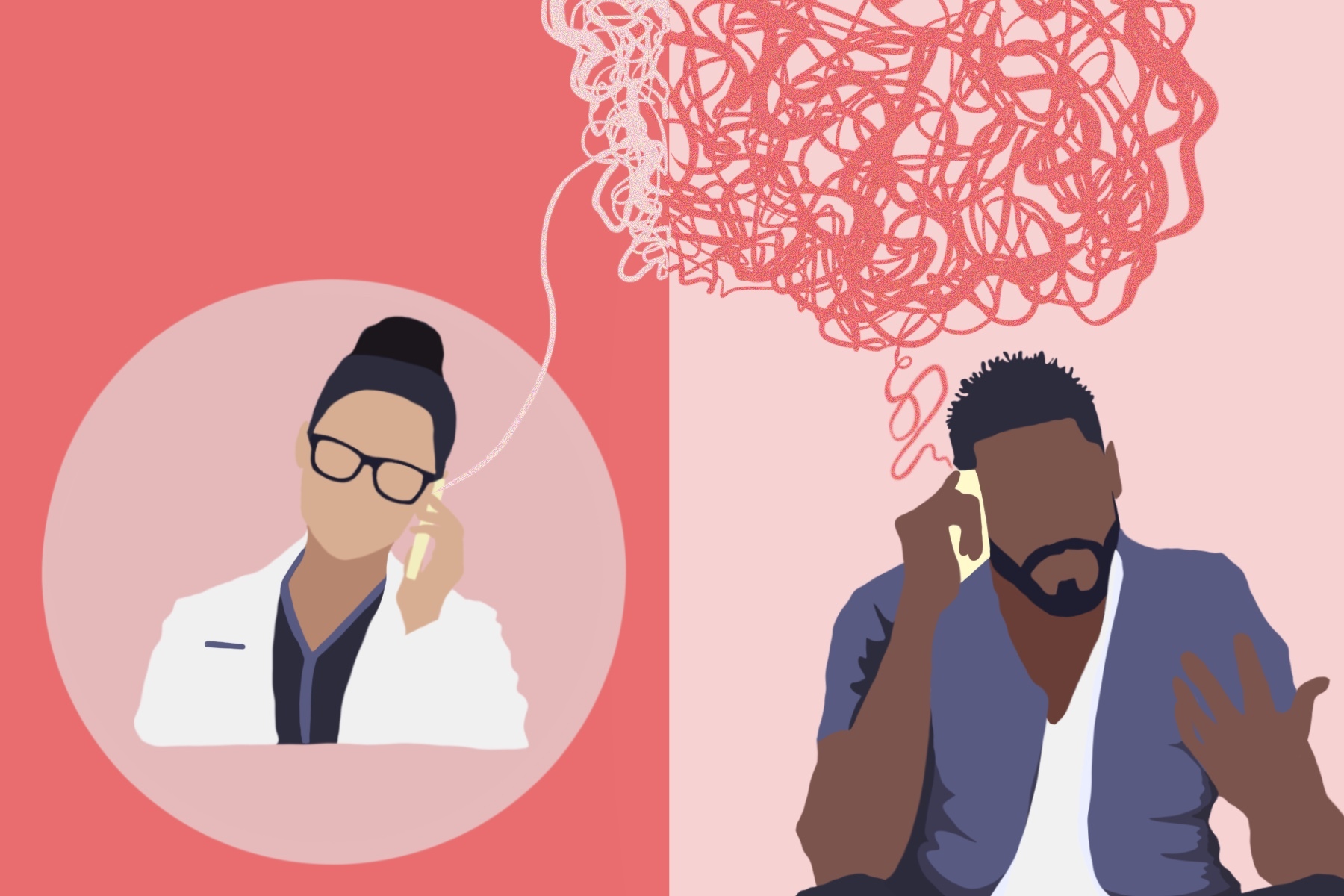Living through a pandemic has wreaked havoc on the mental health of many people across the United States. Rates of anxiety and depression have increased significantly over the past few months. Access to in-person mental health care has declined because of efforts to reduce the spread of infection, so online mental wellness services have become increasingly necessary.
Wellness apps such as Headspace are available for day-to-day well-being, while crisis services, such as the National Suicide Prevention Lifeline, exist to provide a listening ear and guidance in more dire situations. However, a gap remains: What happens to people for whom meditation alone cannot solve their woes, but who are also not in crisis and cannot afford therapy?
That is where Ray founders, Stanford students Mika Isayama and Kasey Luo, stepped in. Ray is a free online mental wellness platform for those who want somebody to talk to or need help coping. Ray’s over 20 volunteers conduct motivational interviews to promote wellness and help callers find their own path forward rather than provide advice and diagnoses or prescriptions.
I interviewed one of Ray’s co-founders, Kasey Luo, to learn more about Ray. The following transcript is lightly edited for clarity.
Q: How did you decide to start Ray?
A: The idea for Ray started when I was volunteering for the crisis text line, because as a counselor you see all sorts of people texting in, with anxiety, depression and onset of other mental health issues because of coronavirus-related personal challenges. At the same time, during the coronavirus, I was seeing this outpouring of support from the community, people who wanted to help but didn’t know how to best do that. The idea was to create a way to connect these two sides [of need and willingness to support], especially given that coronavirus’s effects will be long lasting.
Q: What is the difference between the online mental wellness support that Ray provides and traditional counseling?
A: We call our volunteers supporters because we are trying to be very intentional about our marketing. We are not a replacement for professional care. If there is a spectrum from peer counseling to traditional care, we fall on the first side of the spectrum, focusing on peer support and listening. The term counselor could have some connotations, which is why we chose the term supporter.
Q: What distinguishes Ray from other online mental wellness support options that are already available?
A: There are other free listening platforms, like 7 Cups. One of the differentiators that is huge is that most free listening platforms are done through text. We are through audio/video calling, which adds a more personal element.
One other thing we realized we could address is the barrier between whoever is texting in, needing that support, and the idea that they don’t know who they will talk to. We wanted to give more agency to our users, so that they could select who they felt comfortable talking to.
When we did user research, we found that people often feel most comfortable sharing with someone they share some kind of identity with, like race, gender, sexual orientation or other shared experiences. We made addressing that wish a central part of our platform. When you go to the site as a user, you can click on a time slot and see identifier tags for all of our supporters who are available, for demographic information and personal lived experiences.
Q: What happens if someone on one of your calls seems to be in crisis?
A: We try to make it clear what we can and cannot provide when we do marketing and outreach. We try to be very clear that our service cannot handle crisis needs. If someone calls in and is in crisis, we have a set of crisis resources to refer them to. We don’t want to act as a stand-in for crisis services or more professional help if that is what someone needed.
Q: How did you recruit supporters, and how are they trained?
A: We recruit supporters with prior counseling experience. Some of our supporters come from crisis counseling lines, some are peer counselors at their universities, some have social work backgrounds and others are training to be clinical psychologists. Training for Ray is focused on motivational interviewing, listening to someone and being with them in a way that helps them move in the direction they want to go in. The director of the wellness leads the training, in addition to other guest speakers.
Q: Ray Support Sessions are free. How is Ray funded?
A: We are funded by a few small grants for COVID relief efforts. Our platform is run by volunteers; everyone is doing it out of their own generosity. Funding goes to maintaining the site.
Q: Does Ray provide counseling in languages other than English, including ASL? Are there any plans to do so?
A: That is definitely something we are thinking about. We are recruiting bilingual supporters, focusing on being able to provide Spanish language support. It really depends on having a group of supporters with previous counseling experience who also speak other languages.
Q: What are your plans for the future of Ray?
A: As long as there is a need, we want to be able to provide support. Going forward, my co-founder and I want to sustain this for the foreseeable future. Even when the coronavirus subsides, the psychological effects [on society] may remain. We want to reach low-income people, uninsured people and communities of color who often do not receive mental health help.
Q: Is there anything I didn’t ask you that people should know about Ray?
A: If you are someone who is in a hard place and are looking for extra support, don’t be afraid to reach out. Our supporters are here to help support you.
















